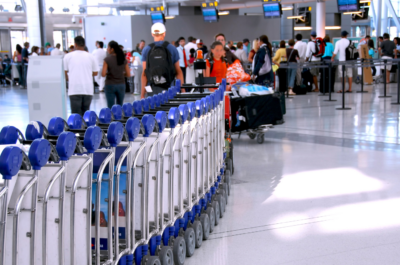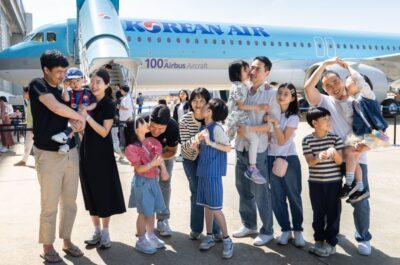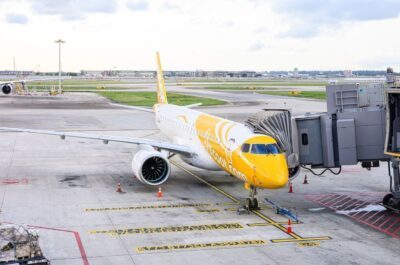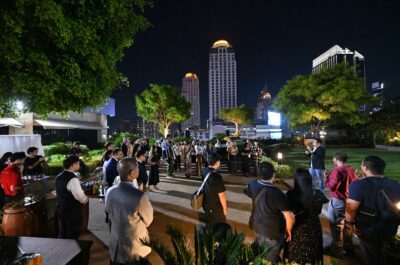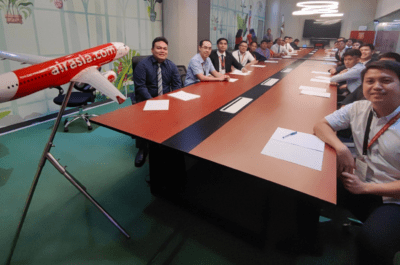Passenger cars are the main transportation means for tourists (around seven times more than by airplane). The active participation of the automotive industry – applying emission reducing technologies and raising awareness among drivers – can become a vital component of the global action on climate change response and poverty alleviation. Tourism, like other sectors, has to mitigate green house gas (GHG) emissions, to adapt business and regulatory actions, to encourage technology…
 Passenger cars are the main transportation means for tourists (around seven times more than by airplane). The active participation of the automotive industry – applying emission reducing technologies and raising awareness among drivers – can become a vital component of the global action on climate change response and poverty alleviation. Tourism, like other sectors, has to mitigate green house gas (GHG) emissions, to adapt business and regulatory actions, to encourage technology transfer and to help secure financing for poor countries – the four pillars of the Davos Declaration, produced together with the UN Environmental Programme (UNEP) and the World Meteorological Organization (WMO).
Passenger cars are the main transportation means for tourists (around seven times more than by airplane). The active participation of the automotive industry – applying emission reducing technologies and raising awareness among drivers – can become a vital component of the global action on climate change response and poverty alleviation. Tourism, like other sectors, has to mitigate green house gas (GHG) emissions, to adapt business and regulatory actions, to encourage technology transfer and to help secure financing for poor countries – the four pillars of the Davos Declaration, produced together with the UN Environmental Programme (UNEP) and the World Meteorological Organization (WMO).
This position represents tourism’s input to the long-term UN roadmap on climate change response, as decided during the UN Climate Change Conference in Bali, Indonesia, in December 2007.
Tourism, climate change and development
According to the study ‘Climate Change and Tourism’, tourism arriving by car is responsible for less than 2% of total carbon dioxide emissions (CO2). This major work undertaken by UNWTO estimates tourism’s total contribution of CO2 at around 5% of the world’s total. This percentage also corresponds to the sector’s positive contribution to the world economy.
Transport’s share of GHG emissions will increase, as the number of vehicles is projected to double to about 1.2 billion worldwide in 2020, according to the Fédération Internationale de l’Automobile (FIA). At the same time, improved technology allows a dramatic GHG reduction from new vehicles.
“FIA and its member clubs are UNWTO’s ideal partners in the global effort on climate and poverty. You connect to hundreds of millions of tourists who are becoming more aware of the environmental impact of their mobility,” said UNWTO Assistant Secretary-General Geoffrey Lipman, addressing the ‘FIA Conference Week’ in Luzern, Switzerland.
He added that “the fastest growth of the number of vehicles is forecast to take place in emerging economies, just like the fastest expansion of tourism. With greener technologies in the car industry, this represents a unique potential for tourists to respond positively and reduce the carbon footprint, and to effectively contribute to sustainable development.”
Middle classes are starting to grow in the emerging markets of Brazil, China or India and their economic areas of influence, and slowly but surely in some parts of Africa. These new poles of economic dynamism will also lead to new consumption patterns and increased demand and two-way trade and development.
As a UNWTO Affiliate Member, FIA and its global network can help the sector to adapt and mitigate the climate impact. At the same time, the alliance with UNWTO can help transfer technology and know-how to the world’s poorest countries.
2008 focus
Following the 2007 Davos Declaration, UNWTO’s focus in 2008 will be on the promotion and implementation of the action oriented Davos Declaration Process.
UNWTO’s call to respond to the challenge of climate change consists of a year long campaign during 2008, with World Tourism Day on 27 September in Peru as one of its highlights.
“As a result of the intensified cooperation with FIA, we look forward to a powerful message to their members and stakeholders to join global actions on climate and poverty. This is a proven opportunity to promote the sector’s input to the evolving UN led roadmap to sustainable growth in a carbon-reduced global economy”, Mr. Lipman said.
Theodore is the Co-Founder and Managing Editor of TravelDailyNews Media Network; his responsibilities include business development and planning for TravelDailyNews long-term opportunities.


































